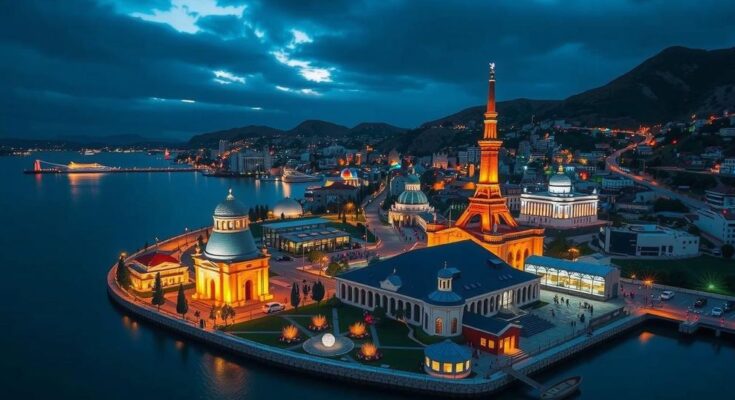COP29 officially opens in Baku, Azerbaijan, gathering diplomats to negotiate climate financing and policies. The conference focuses on securing funds necessary for pollution reduction and adaptation to climate change. While transformational outcomes are not expected, there is cautious optimism that COP29 may inspire greater international collaboration to tackle climate issues.
The 29th United Nations Climate Conference, known as COP29, has commenced in Baku, Azerbaijan, attracting a significant number of global diplomats as they engage in discussions concerning climate change and financial commitments to combat its impacts. In a context where previous targets for climate finance have remained unfulfilled, the conference aims to address the pressing need for funding solutions for pollution reduction and adaptation to climate-related disasters. Although expectations for sweeping resolutions are tempered, there is hope that COP29 could pave the way for enhanced collaboration among nations.
COP29 serves as a pivotal diplomatic platform where developing nations confront wealthier countries that have historically contributed to climate change through their reliance on fossil fuels. This annual gathering, while not anticipated to halt climate change, functions as a forum for dialogue and negotiation, enabling less affluent nations to advocate for their interests. The meeting’s focus will span financing climate initiatives, amidst a backdrop of unmet financial commitments by rich nations, which have fallen short in delivering promised funds.
As COP29 unfolds in Baku, international participants face a critical juncture in climate diplomacy. The potential for meaningful agreements on financial contributions remains uncertain, particularly given the absence of several key world leaders. Nevertheless, the conference holds the promise of fostering trust and cooperation, which may influence future climate action plans. Ultimately, COP29 endeavors to unify global efforts in addressing the pressing environmental challenges ahead.
Original Source: www.theguardian.com




